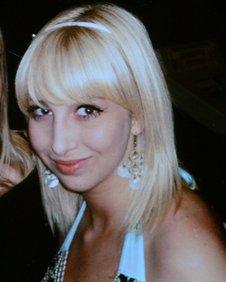'Regret' over ban on legal highs
- Published

Student Hester Stewart died after taking GBL on a night out in Brighton
The Home Secretary has told Newsbeat he regrets taking so long to ban the drug GBL, linked to a series of young deaths over the last couple of years.
The government has confirmed it now plans to make the substance illegal by the end of the year along with a herbal mix known as Spice and the chemical BZP often sold as an ecstasy substitute.
"In hindsight I wish we could have done it more quickly," said Alan Johnson.
"We certainly have accelerated [the process] over the last few months which is why we are announcing it today even though we need parliamentary approval."
GBL is a colourless liquid usually mixed with a drink. In small doses it is meant to give a euphoric high but in larger amounts or combined with alcohol it has been connected to a series of accidental deaths.
Newsbeat spoke to the friends of 21-year-old medical student Hester Stewart who died in April after taking GBL on a night out in her home town of Brighton.
"It is not something you can ever expect, really," said her school friend Ross. "I was meant to be seeing her the next day and it was a massive shock. It just freezes you to the spot and you don't know how to react."
Tests after Hester's death showed she was one and a half times over the legal drink drive limit, roughly equivalent to three glasses of wine or beer.
In higher doses, or mixed with alcohol, GBL acts a powerful sedative which can shut down parts of the body.
Education 'key'
Hester's best friend Liz said: "In other countries where it is already banned there are posters everywhere saying the GBL plus alcohol equals death. It needs to be labelled properly and young people need to know the dangers."
The government is now planning a new information campaign to tie in with university freshers' week to warn about the dangers of drugs like GBL.
"There is a perception that many of the so called legal highs are harmless. However, in some cases people can be ingesting dangerous industrial fluids or smoking chemicals," said Alan Johnson.
"We have a duty to educate young people about the dangers."
As well as GBL, the new ban will also cover the herbal mixture Spice and the substance BZP, a stimulant often used as a substitute for ecstasy or speed.
Tests on pills seized at Glastonbury this year showed most of the tablets sold as ecstasy contained BZP instead of MDMA.
Critics of the government's approach say that banning BZP and GBL will just encourage users to buy potentially more harmful drugs from dealers.
"The whole point about illegality is that it doesn't get rid of drug use," said Steve Rolls, the research director at the charity Transform.
"The back street chemists will just cook up something else. The problem is the legislation cannot keep up with the entrepreneurs."
- Published24 August 2009
- Published24 August 2009
- Published12 August 2009
- Published22 July 2009